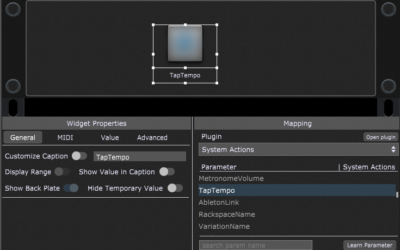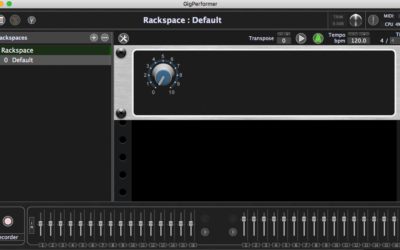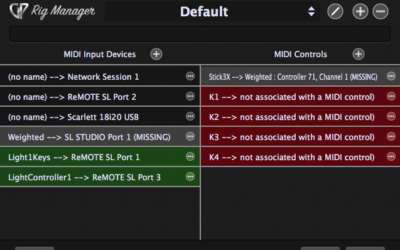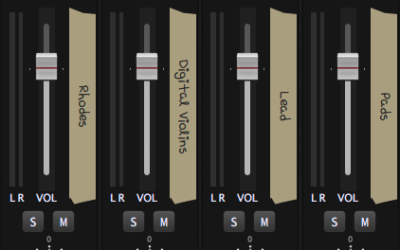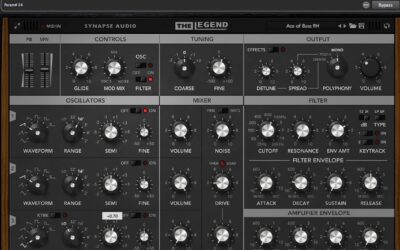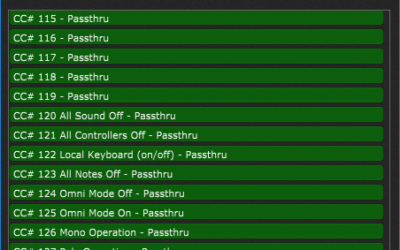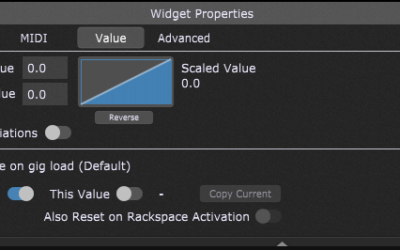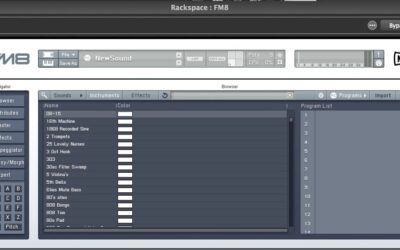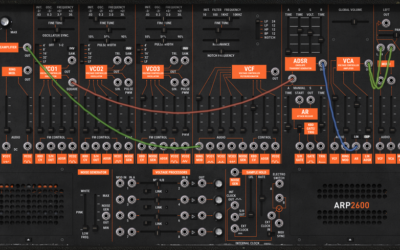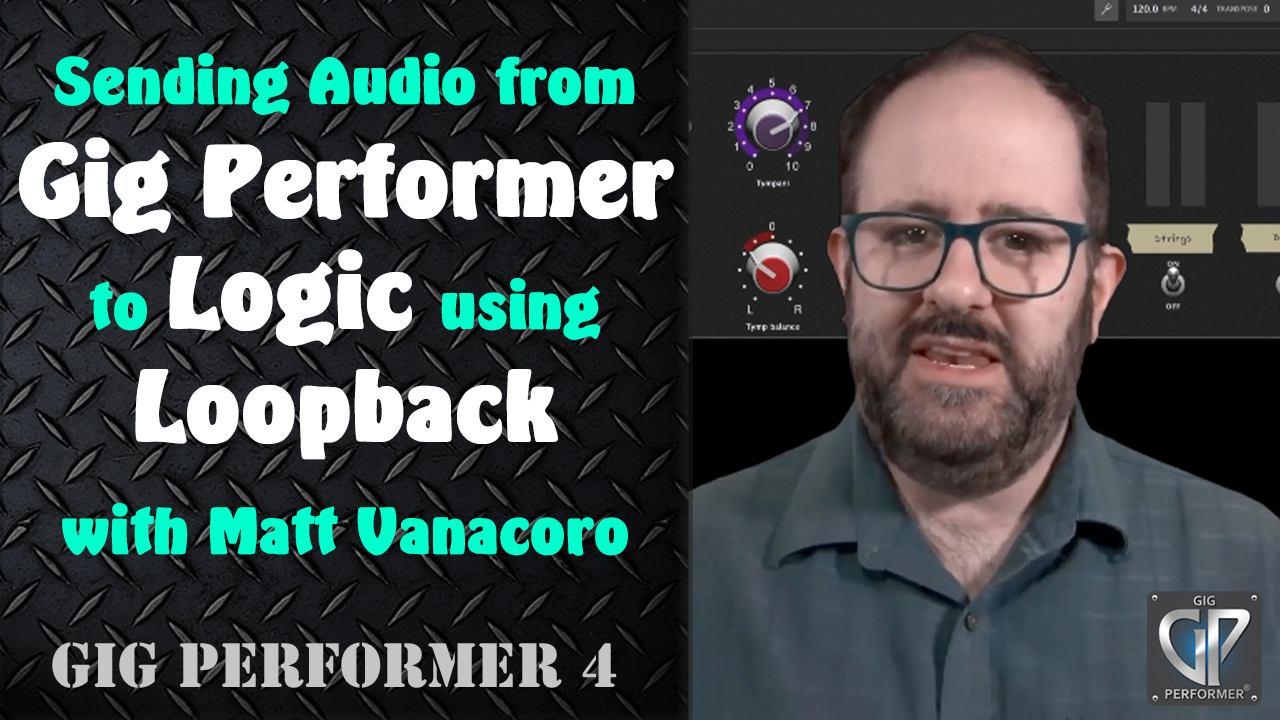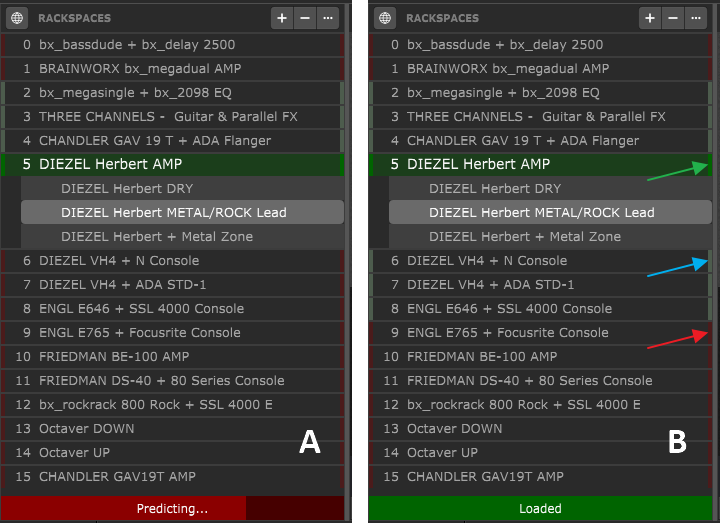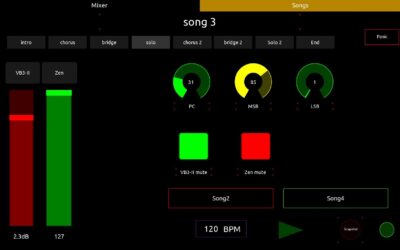GIG PERFORMER BLOG
How to create a tap-tempo button
In this article learn how to create a tap tempo button in Gig Performer 4 and earlier editions. . Gig Performer 4 . There’s no need to use GPScript any more for this. The System Actions plugin has a TapTempo parameter. Just attach a widget (typically a button or pad)...
The Audio and MIDI Recorder
Gig Performer's Recorder provides a simple way to capture every audio input channel to its own wave file, paving the way to capturing the entire raw live performance of a band for later post processing. The feature is aimed mostly at FoH engineers who are using Gig...
The Rig Manager
The Rig Manager is used to isolate the particular keyboards and/or MIDI controllers (MIDI pedal boards, etc.) from your actual rackspace setups. The fundamental idea is: - you name your physical devices in the Rig Manager, - and you use those names when you are...
The Audio Mixer/Router Plugin
A much requested feature in Gig Performer was an Audio Mixer, a multi-channel gain control plugin. Instead of creating separate gain controls after each synth plugin, you could use a single plugin to control the gain of multiple plugins. Our plugin comes in 4ch (two...
The GPScript Programming Language
Gig Performer ships with a built-in programming language GPScript that can be used to develop very sophisticated behavior for live performance. GPScript gives Gig Performer some "open endedness", providing the ability to add features that are not already built in to...
Toggle MIDI plugins on/off in the same rackspace without getting stuck notes
Although we're really busy working on Gig Performer 2.x (more on that later), we put out a minor update to Gig Performer 1.x today where it's now possible to distinguish between NoteOn and NoteOff events in our MIDI Filter plugin: Why is this interesting? Well, turns...
Using Recall Value On Load and Also recall on Activate widget options
By default, Gig Performer saves the values of all widgets using a "last value saved" algorithm. That means that when you change a widget value and save your gig, then when you reload your gig, that widget will have the same value. This is very convenient but it may...
Rackspaces vs. Program Changes
The normal way to use Gig Performer® is to create rackspaces each of which contains a collection of plugins connected together as desired. A rackspace might contain everything needed for a single song or you might use several rackspaces during a single song, switching...
How to play “Won’t Get Fooled Again” with Gig Performer
In this article we explain how to play "Won't Get Fooled Again" with Gig Performer (yes, there's a video of the complete process at the end of this article so don't be afraid to keep reading!). If you have been watching YouTube videos of people showing you how to play...
Using Loopback to send audio from one application to another
MacOS has a nice built-in feature called IAC (Inter-app Communication) that allows you to connect MIDI applications together and communicate with each other. (There's nothing built into Windows but there are third-party applications like virtualMIDI that do the same...
Predictive loading just saved my a– !
The Predictive Loading feature just saved my a-- !!! Seriously! I'm getting ready to go on a tour in Japan with the Security Project. My main laptop is a 5 year old Macbook Pro with a 17" screen. It has 16Gb RAM and SSDs instead of hard drives for both speed and...
Using Touch OSC app as a remote display and a touch control surface with Gig Performer
In this short video - we will show you how to use Touch OSC app as a remote display and touch control surface with Gig Performer to control your live rig and display the most important information about the current status. You will also see how easy it is to use an...

